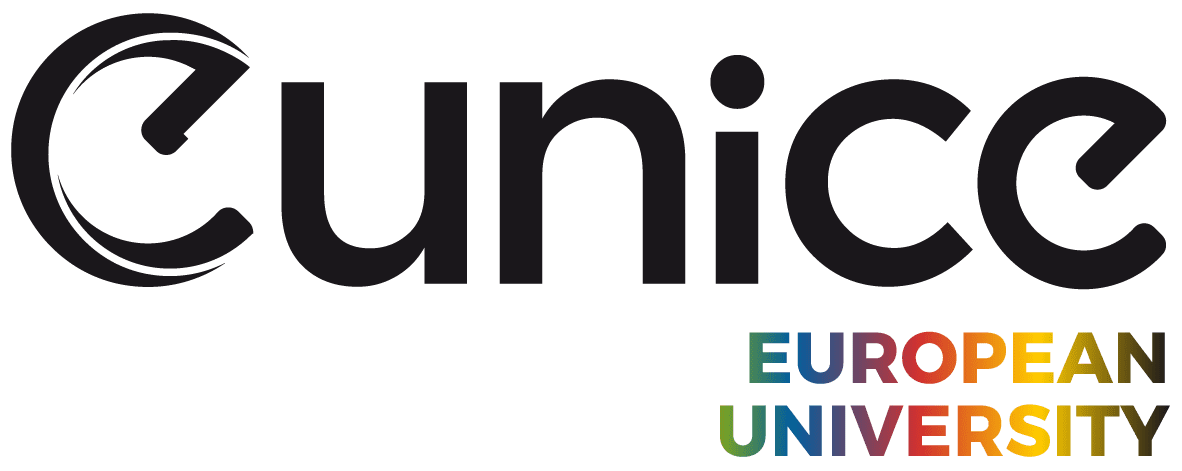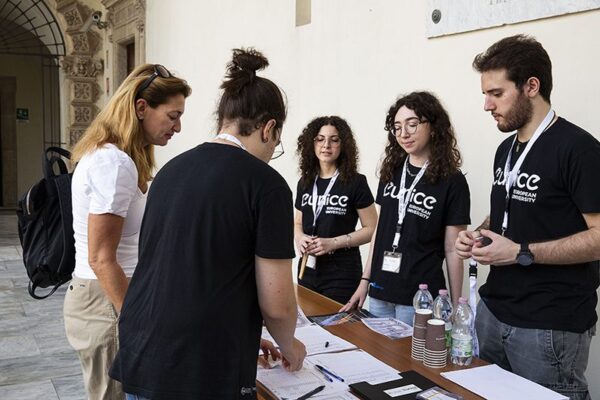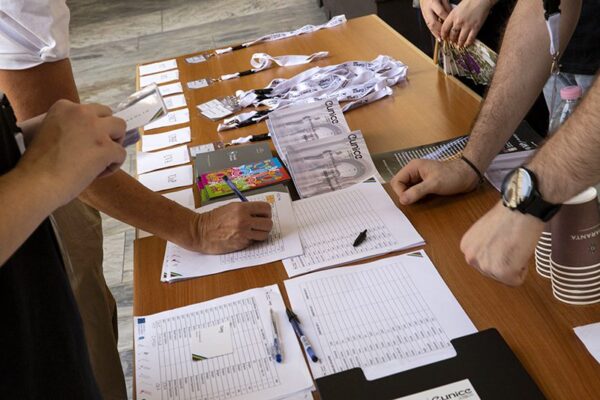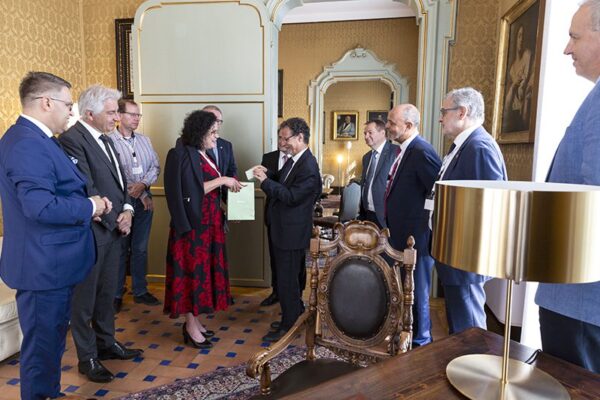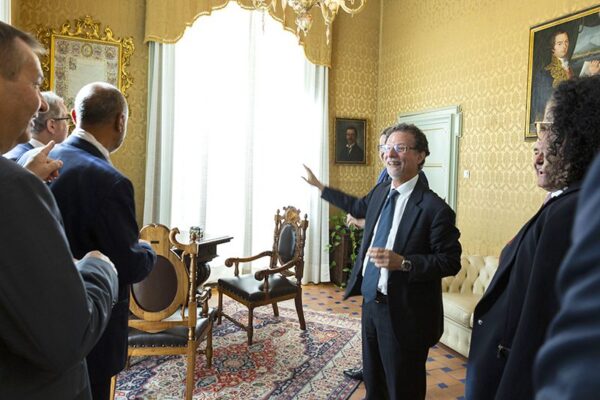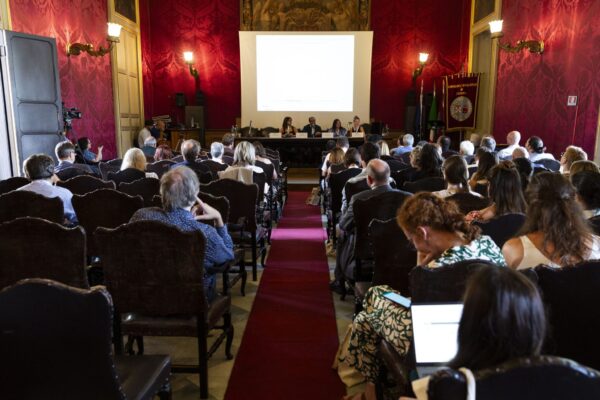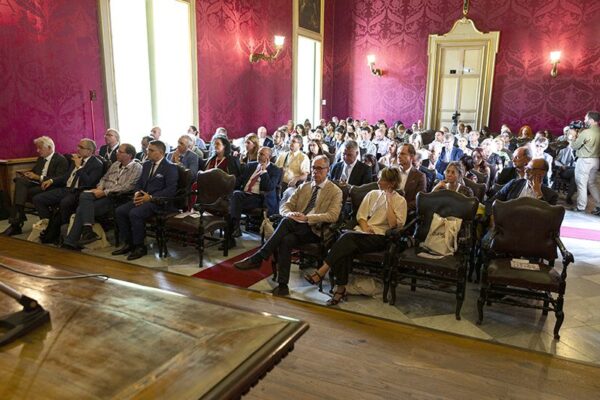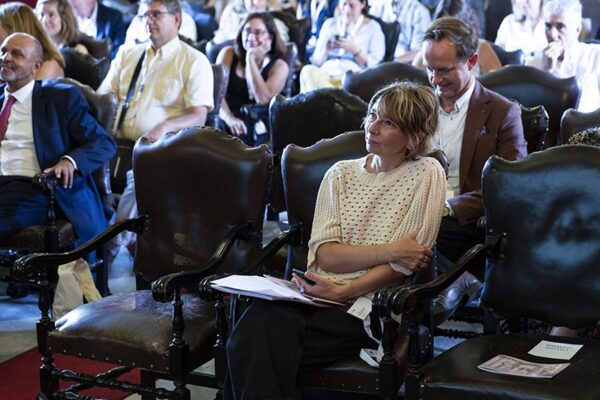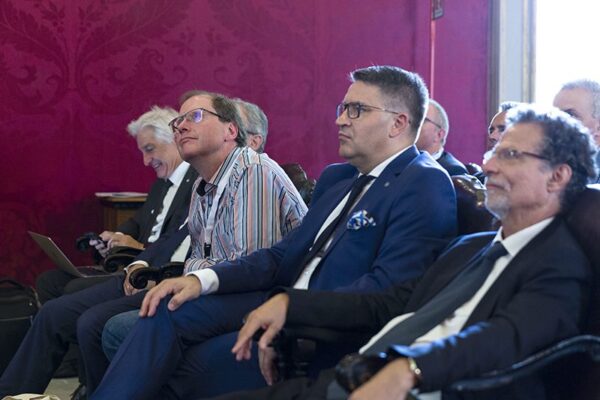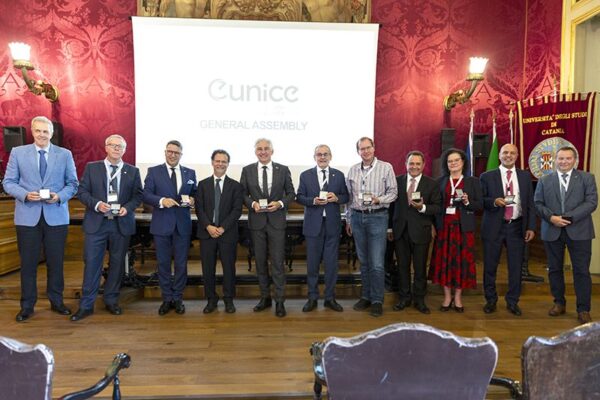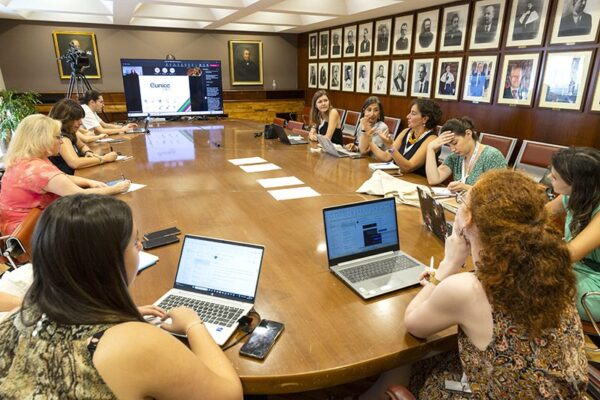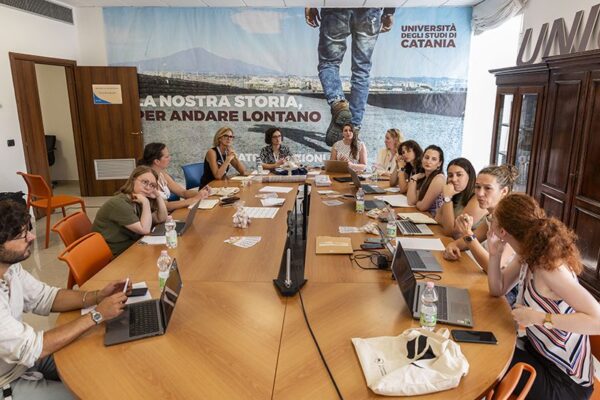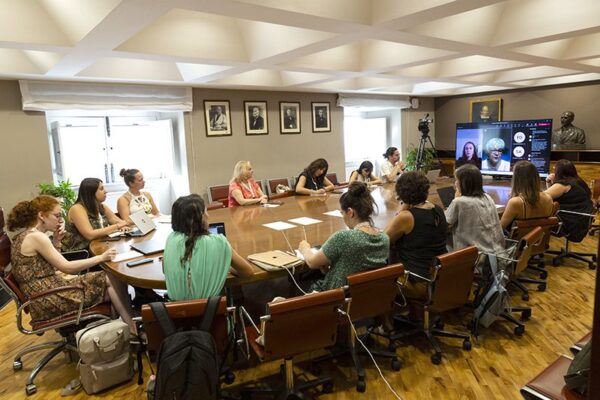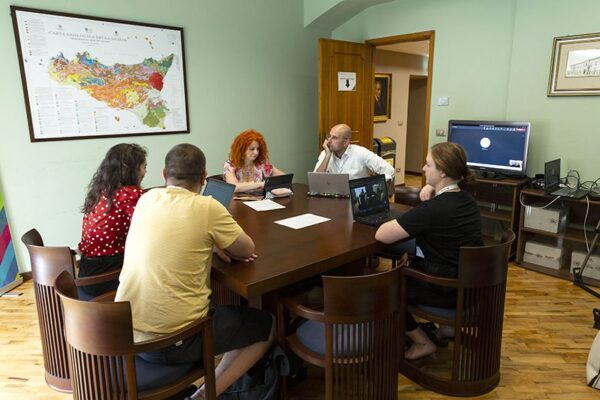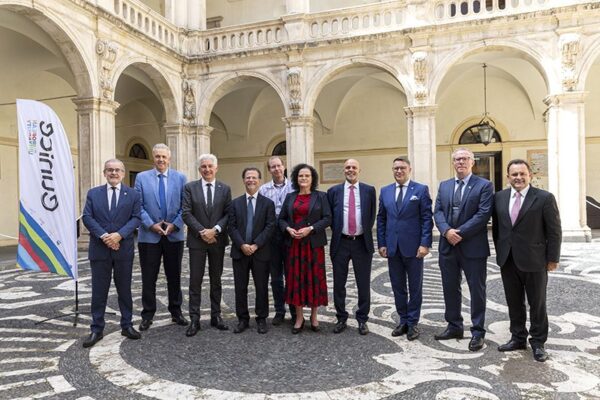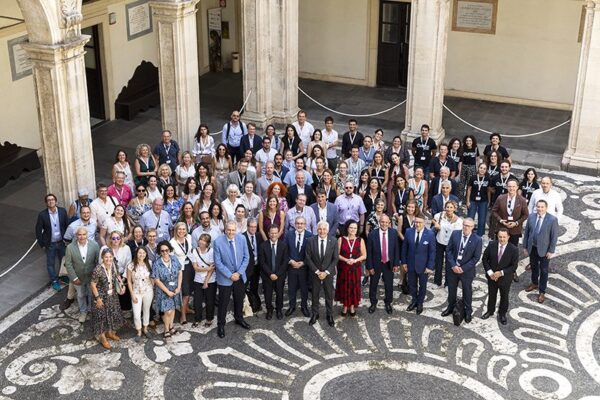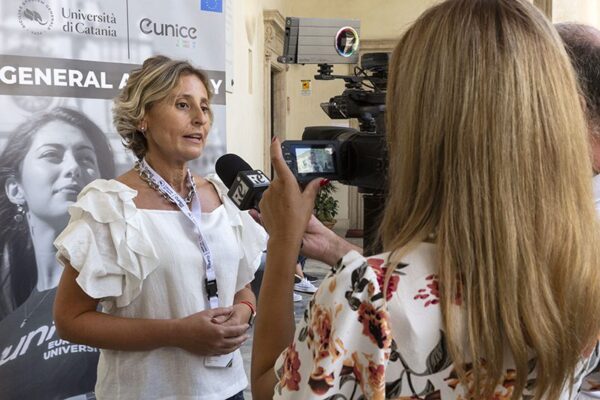Rectors and Vice-Rectors for Research and Academic Affairs met to discuss next developments on the occasion of the EUNICE General Assembly held this week in Catania (Italy)
EUNICE European University held its General Assembly at the University of Catania (Italy) on the eve of its third anniversary and about to start its second phase within the European Erasmus+ programme. From 18th to 20th September, Rectors and senior representatives of the ten universities in the consortium took stock of the achievements and the challenges ahead, with particular emphasis on the development of future joint European Degrees. The occasion also served to follow up on the H2020 European project to promote joint research within the alliance, Reunice (EUNICE Research).
“EUNICE is not just a project, it is a dream that we are realising together,” said Francesco Priolo, Rector of University of Catania, “a large European university, with campuses in 10 countries, that will allow students to have opportunities in ten partner universities. We accepted an ambitious challenge three years ago, and we are beginning a new phase, also thanks to the extension to 3 new partner universities. I say to our students with conviction: EUNICE is for you.”
First achievements
After the inauguration, leaders of the different teams in which EUNICE operates reported on the achievements in the Activating a European University session. The first presentation, Sharing and Co-creating Courses: Road to Excellence, by Hounaida Frikha (Université Polytechnique Hauts-de-France) showed how the academic online offering of the partner universities is shared through the EUNICE Course Catalogue and the potential joint degrees EUNICE could develop in the framework of the Excellence Programmes. European Values and Global Competencies, by Rony Snyders (University of Mons) and Marta Gómez (University of Cantabria), showed how multicultural activities such as the EUNICE Weeks, the Blended Intensive Programmes and languages courses are leading students to obtain the EUNICE Certificate in Global Competencies. Lastly The University, Business and Society Connection presentation, by Cristina Satriano (University of Catania) and Patrick Hoffmann (Brandenburg University of Technology Cottbus-Senftenberg), described some of the actions implemented around EUNICE International Internship Portal and entrepreneurship workshops and competitions.
In addition to the Rectors’ summit, the programme also included parallel sessions between Vice-Rectors for Academic Affairs to progress on the development of joint degrees, a session between Vice-Rectors for Research, as well as meetings with the Student Advisory Board and meetings of the Mobility, REUNICE H2020 Project and Communication teams.
New objetives since 2023
November will see the start of the second phase of EUNICE, the European University for Customised Education, which has secured European funding of 14 million euros (Erasmus+ Programme) to fulfil its mission. Founded in 2020, EUNICE alliance currently consists of ten universities with campuses across ten European countries, responsible for the education of 150,000 students. Its potential is summarised in 60 faculties and university schools in which they work, 15,000 professors and administrative staff, a knowledge encompassed in more than 280,000 scientific publications.
